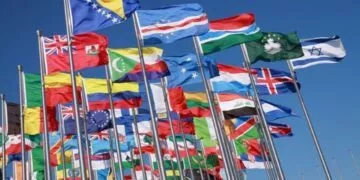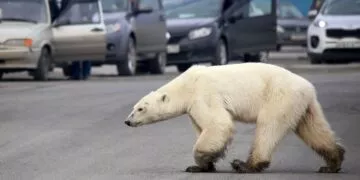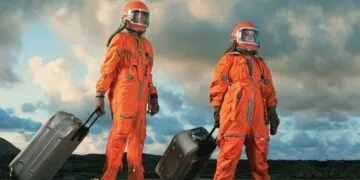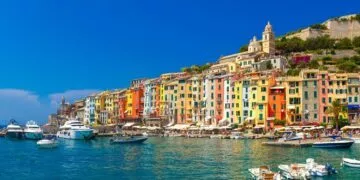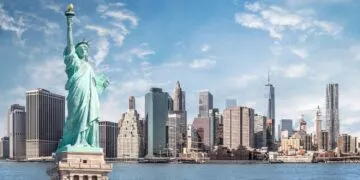Welcome to Russia, a country you might know for its cold climate, vodka, and world-famous nesting dolls.
Russia’s history began 1160 years ago when several Kievan Rus states unified in 879 AD. Russia has changed a lot since then; modern Russia as we know it didn’t form until 1991 with the collapse of the Soviet Union.
Despite being one of the most well-known countries in the world, there are still many fascinating facts for you to discover about Russia and its history, so here are 15 radical facts about Russia!
Russia is the largest country in the world.
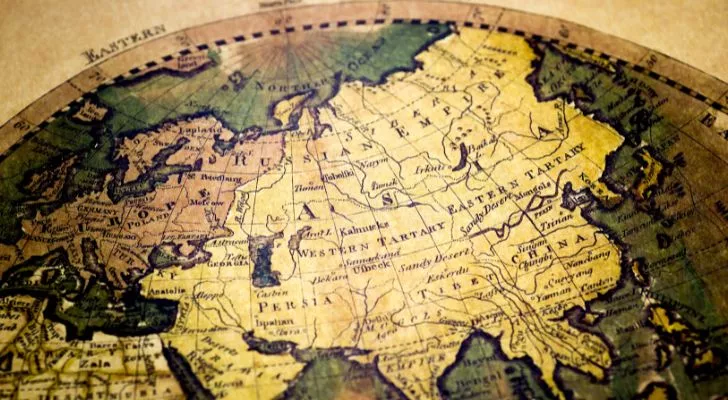
Maybe you already knew Russia was pretty big, but did you know just how massive it is?
With a total area of 6,601,665 square miles (17,098,242 square kilometers), Russia is the biggest of all the world’s countries.
For comparison, this is 70% bigger than the second-largest country, Canada, and more than twice as large as the third-place United States.
Russia has the world’s longest border.
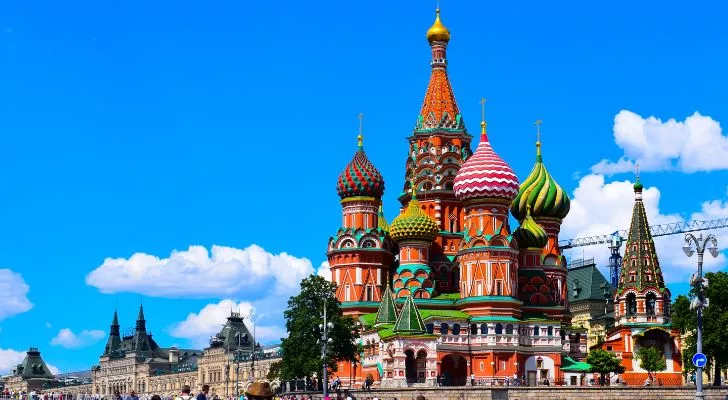
Being the largest country in the world, it isn’t surprising that Russia also boasts the longest border!
The total length of its border is 35,910 miles (57,792 km), which it shares with 14 other countries.
Its boundary stretches as far West as Poland due to its exclave, Kaliningrad, between Poland, Lithuania, and the Baltic Sea.
Russia has one of the oldest currencies in circulation.
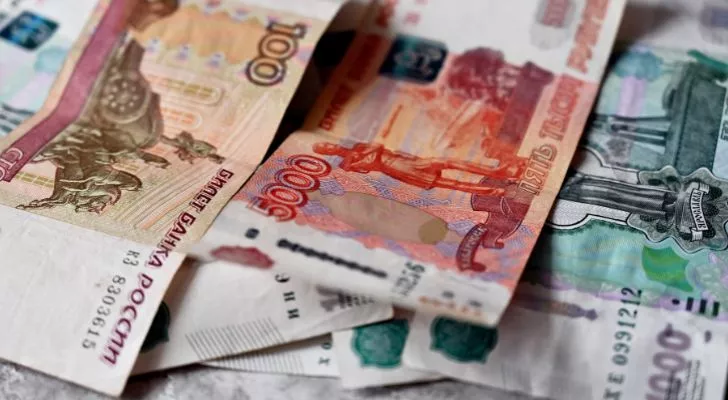
The Russian Ruble has been circulating in various forms since the 13th Century. The British Pound is the only other currency in circulation today that is older than this.
Russia first used the Ruble in medieval times, and it likely got its name from the Russian verb “rubit,” which means “to chop.”
The Russian Language is one of the two “Space Languages.”
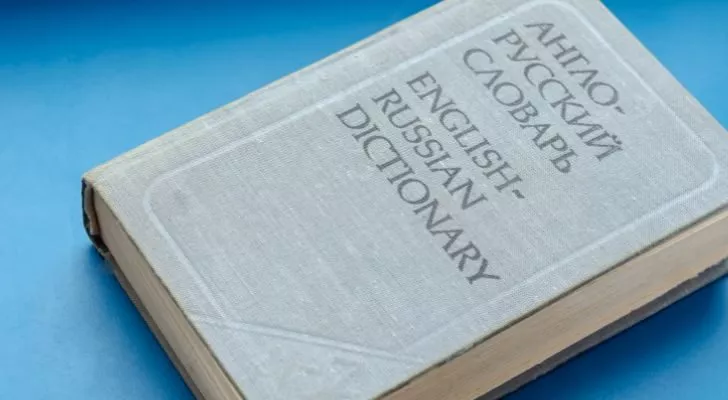
If you’ve ever wondered how astronauts from around the world, all using different languages, can work together while they’re on the International Space Station, wonder no more!
While there is no official language for the ISS, English and Russian are the principal choices. Even US astronauts have to learn Russian as part of their training to go to space.
Russia sold Alaska to the United States in 1867.
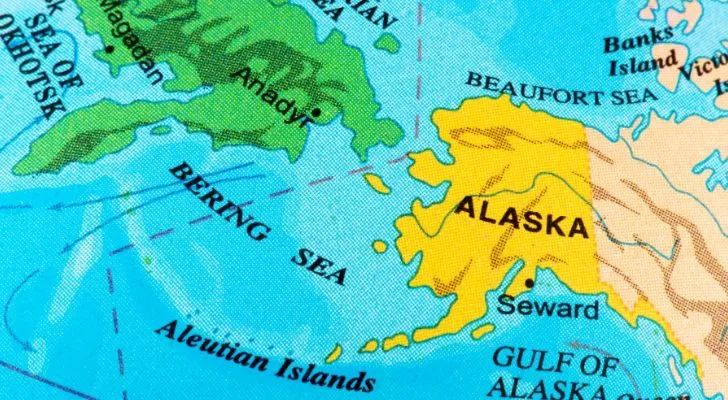
Russia had been sending settlers to Alaska since 1725. But when needing to improve finances, Russia offered to sell its North American land claims to the US government for $7.2 million (about $125 million in today’s money).
Russia gave the original offer in 1859, hoping that empowering the United States might weaken Russia’s biggest Pacific rival, Great Britain.
America’s Civil War delayed the sale. Still, representatives from each country signed the agreement on May 28, 1867. On October 18th of the same year, Russia transferred the territory to the United States.
Russia is home to 1.87% of the world’s population.
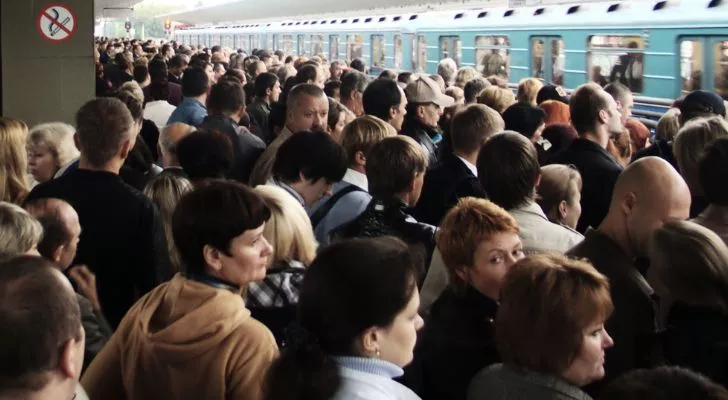
Russia is the 9th most populated country globally, with 146,123,072 estimated inhabitants.
Although this is a huge number, considering how large the country itself is, the population density of Russia is surprisingly low!
At 23 people per square mile (9 per km²), it ends up being one of the least densely populated countries in the world.
The coldest inhabited village on Earth is in Russia.
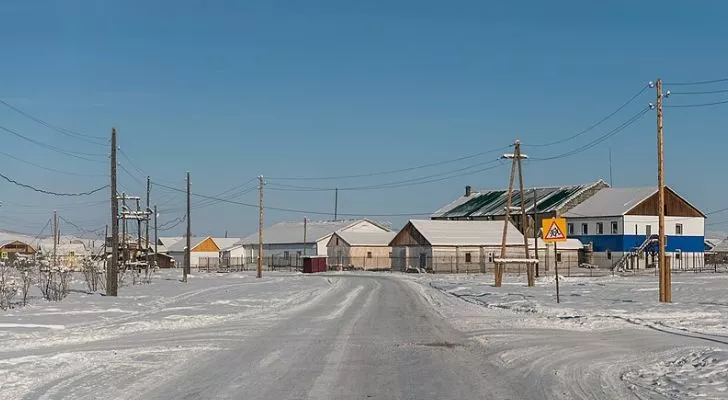
Russian winters are known for their brutality, but it gets unbelievably cold in one village in particular.
The village of Oymyakon, in the Sakha Republic within Russia, is known as “the coldest permanently inhabited place on Earth.”
Average winter temperatures get as low as -58 degrees Fahrenheit (-50°C), and their lowest recorded temperature was minus 96.2 Fahrenheit (-71.2°C).
The first Russian nesting doll set was carved in 1890.
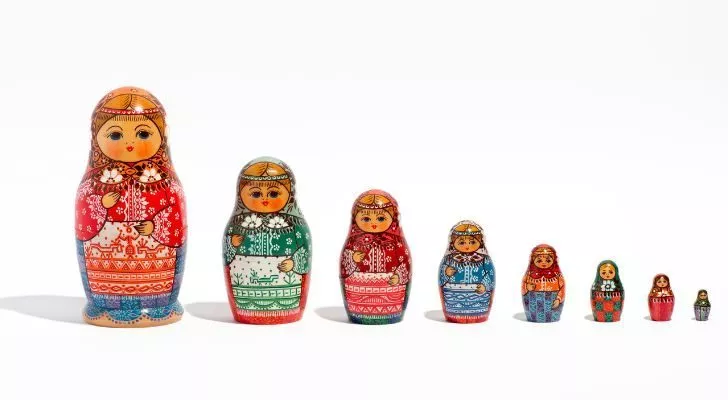
Now known worldwide as a symbol of Russia, nesting dolls are known as Matryoshka dolls in Russia.
The first set was carved in 1890 by Vasily Zvyozdochkin and then painted by Sergey Malyutin, who both worked on the estate of Savva Mamontov.
Years later, Mamontov’s wife presented the dolls at the 1900 World’s Fair in Paris, where they received a bronze medal, increasing the toy’s production in Russia and its distribution worldwide.
Almost half of Russia is covered in forests.
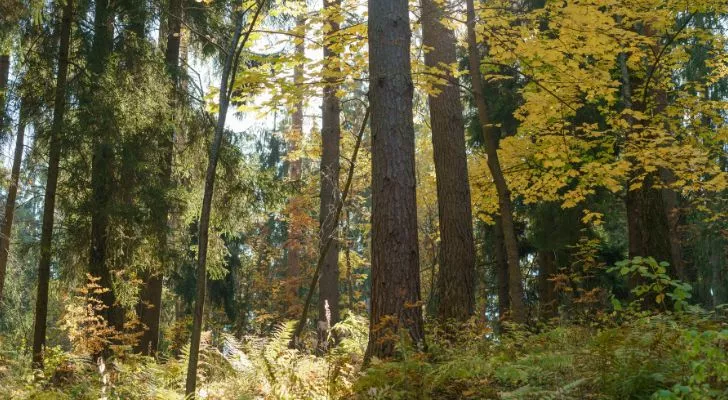
49.4%, to be exact, and considering how large the country is, that’s a whole lot of trees!
About a third of this is “primary forest,” the thickest and most biodiverse woodland type.
There are volcanoes in Russia.
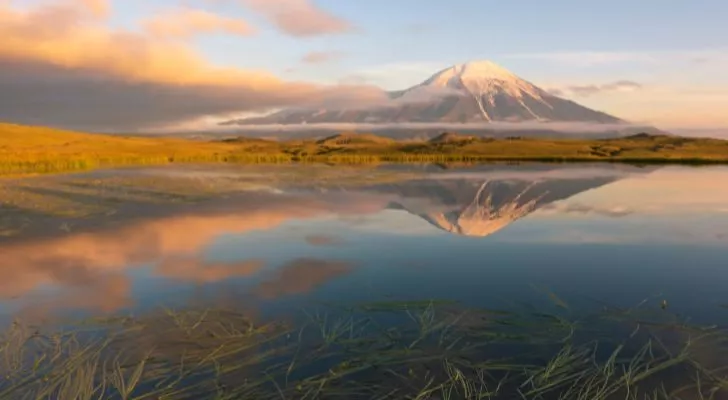
When you imagine Russia, it’s typically the frosty winters, arctic tundras, or bustling cities, not volcanoes.
But it’s true; Russia is home to 77 volcanoes, of which 61 are active. The last severe eruption in Russia occurred in 1872 when the volcano “Sinarka” erupted on January 1, 1872.
This was Russia’s worst recorded volcanic eruption in terms of lives lost, houses destroyed, and economic disruption.
Russia has the deepest lake in the world.
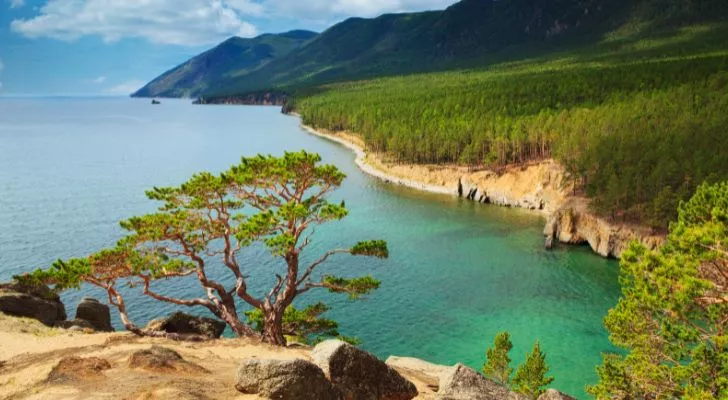
UNESCO recognized Lake Baikal as the deepest lake in the world at 5,577 ft (1,700 m).
Famous for its unusual and diverse freshwater fauna, Lake Baikal is 12,162 square miles (31,500 km²) in area and contains 20% of the world’s unfrozen freshwater reserve.
It is situated in South-Eastern Siberia and is also the oldest lake in the world at 25 million years old.
The first human in space was from Russia.
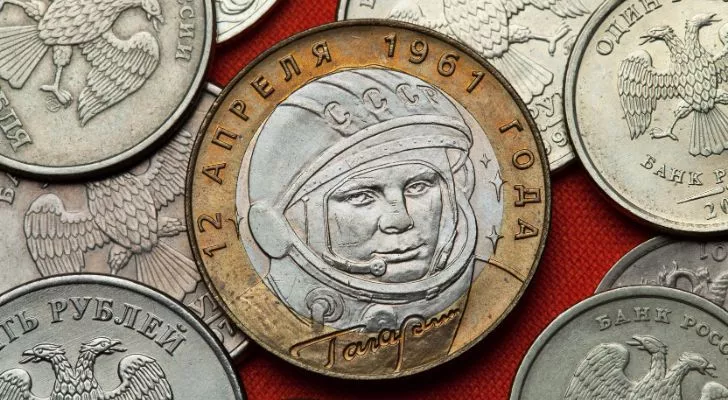
Yuri Gagarin was born in the Soviet Union, the precursor to modern-day Russia.
The Soviet Union sent Yuri on the first crewed mission into outer space. His spacecraft, Vostok 1, circled Earth for 108 minutes, traveling about 17,000 miles per hour (27,400 km/h).
Russia has the longest railway in the world.
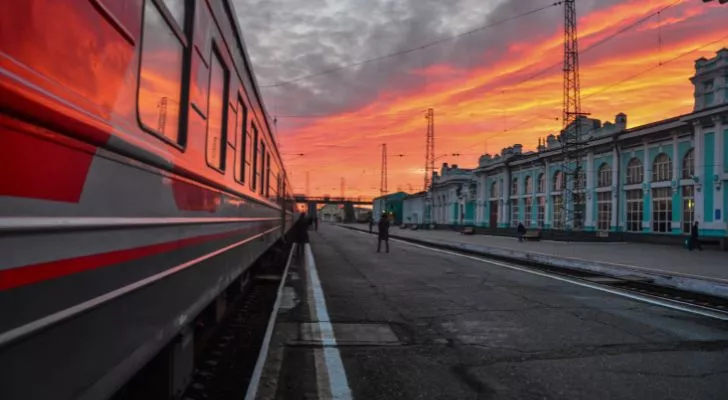
Russia’s Trans-Siberian Railway connects Russia’s capital Moscow in the West with the far Eastern city Vladivostok. The railway is 5,772 miles (9,289 km) long and crosses eight different time zones.
The Russian government ordered its creation on March 9, 1891, and construction was completed on June 21, 1904.
Russians drink the most vodka per person of any country.
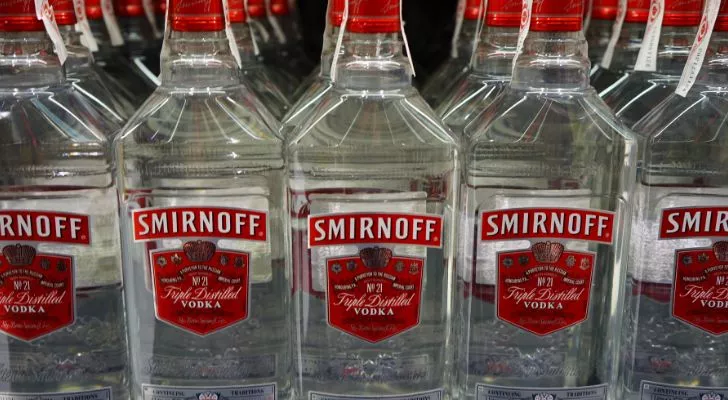
Although it’s a stereotype of the country, it is indeed true, with the average Russian drinking 17.28 shots of vodka per month. That’s a lot of alcohol!
In perspective, Poland is the next highest vodka-consuming country, at 13.71.
Tetris was invented in Russia.
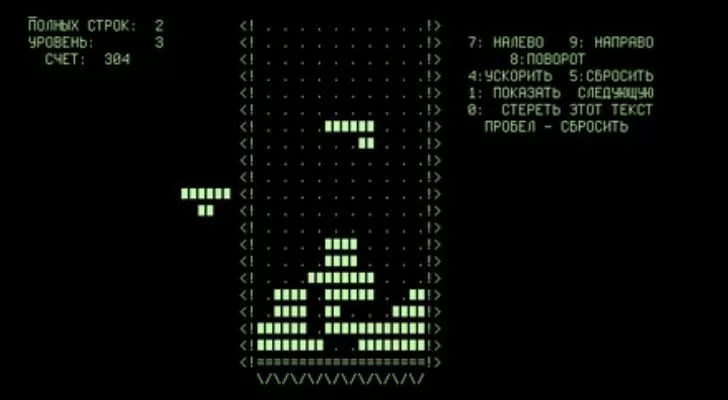
And a final fact for you, you might be surprised to learn that Tetris is, in fact, a Russian invention!
In 1984, Russian scientist Alexey Pajitnov created the video game in Moscow using an Electronika 60 computer system.
Tetris didn’t leave the Soviet Union for another three years, then spread rapidly worldwide to become the game we know and love today.
And with that, we finish our deep dive into some of Russia’s most exciting and awe-inspiring facts!
So whether it’s the vastness of their borders, the astounding Lake Baikal, or Russia’s technological achievements in space, you now know 15 radical facts about Russia that you can share with the world.


